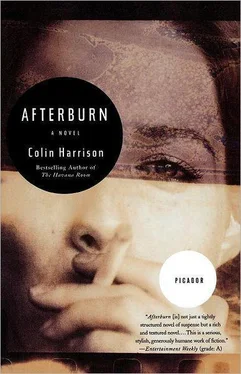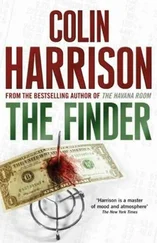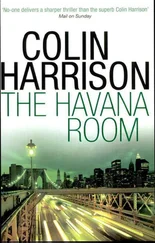Colin Harrison - Afterburn
Здесь есть возможность читать онлайн «Colin Harrison - Afterburn» весь текст электронной книги совершенно бесплатно (целиком полную версию без сокращений). В некоторых случаях можно слушать аудио, скачать через торрент в формате fb2 и присутствует краткое содержание. Жанр: Триллер, на английском языке. Описание произведения, (предисловие) а так же отзывы посетителей доступны на портале библиотеки ЛибКат.
- Название:Afterburn
- Автор:
- Жанр:
- Год:неизвестен
- ISBN:нет данных
- Рейтинг книги:3 / 5. Голосов: 1
-
Избранное:Добавить в избранное
- Отзывы:
-
Ваша оценка:
- 60
- 1
- 2
- 3
- 4
- 5
Afterburn: краткое содержание, описание и аннотация
Предлагаем к чтению аннотацию, описание, краткое содержание или предисловие (зависит от того, что написал сам автор книги «Afterburn»). Если вы не нашли необходимую информацию о книге — напишите в комментариях, мы постараемся отыскать её.
Afterburn — читать онлайн бесплатно полную книгу (весь текст) целиком
Ниже представлен текст книги, разбитый по страницам. Система сохранения места последней прочитанной страницы, позволяет с удобством читать онлайн бесплатно книгу «Afterburn», без необходимости каждый раз заново искать на чём Вы остановились. Поставьте закладку, и сможете в любой момент перейти на страницу, на которой закончили чтение.
Интервал:
Закладка:
Women's Correctional Facility Bedford Hills, New York September 7, 1999
Paint a perfect blue sky, paint it the color of a robin's egg or a child's balloon, then frame that perfect blueness with a double set of forty-foot-high chain-link fences, each topped by five feet of double-bladed steel concertina wire, and on the corners of the compound add a tower with a gray-uniformed guard sitting at the ready with a heavy AR-15-firing capacity two hundred rounds per minute, range three hundred and fifty yards. Now move your gaze inward from those shimmering boundaries across the grass being mowed by a handful of women in forest-green uniforms and toward the irregular compound of brick buildings, some, such as the hospital building, one hundred years old, and all of them in distinctly poor repair-paint peeling from window frames, bricks needing repointing, sidewalks cracked-and past the women in green pushing laundry hampers toward the West Wing psych unit, where more women in green, either delusional, depressed, or criminally insane (including the woman from upstate who killed four babies), sit watching television, rocking ceaselessly as a side effect of the medications, and then you must compel yourself onward, past the building where the women sleep in tiny rooms (adorned with pictures cut from magazines, letters from home, small shrines to children and family) toward a facility that awaits the most contradictory of populations. On the top floor rests a set of cells designed for women sentenced to execution, the possibility of that fate coming courtesy of the solemn campaign promises of New York State's latest governor, and, on the floor below, a spotless nursery of sixteen rooms for women who have come to prison pregnant, those who have been impregnated by their husbands on conjugal visits (which, though against the rules, happens), or, less frequently, but not unheard of, those who have been impregnated in one of the consensual sexual liaisons that occur between the male guards and the women, the purposes of which, for the women, include the procurement of cigarettes, drugs, food, cosmetics, and, without being confused for affection, a welcome contrast to the flesh of another woman (that form of intimate contact being easy to find; the prison, all there know, is full of women kissing and hugging and diddling and tonguing and finger-fucking each other). Then you come to the small single rooms, where the women have been bedded with their newborns-where, as did their own mothers, they've learned to nurse and feed and wipe and whisper their babies to sleep. The hallway outside is gloomy but spotless, and it was here, one afternoon heavy and damp with summer, while pushing her dry mop down the linoleum, that a slender woman of twenty-seven stopped and stood listening, her eyes cast over her shoulder. A tight rope of dark hair hung down her back. She was not pretty, not exactly, but something quieter and more complicated-yes, there was something about Christina Welles that you remembered later, her fierce watchfulness, perhaps, or the silent concentration that suggested an intelligence that had no need to explain itself to others, but watch out if it did. Or you may have noticed the sadness that rested in her face when she was looking down, a sadness she felt but preferred to hide. Or it may have been none of these. What you would not have seen was a face that invited attention, welcomed conversation. Her brown eyes cut sideways at people before she decided whether she liked them, and though she had a rather devilish smile, it was rarely seen. She wished she could be more open and generous toward others, and counted her distrust among the things she did not like about herself. I don't say enough, she told herself, unless I am angry or in love, and then I say too much. Then I say everything.
Listening now, she could overhear the ritual that took place each time a woman came to live in the prison nursery with her newborn, a ritual utterly contrary to human nature, yet unremarkable in this place for its bureaucratic regularity, its numbed procedurality; they were taking another baby away from his mother. I don't want to see this, Christina thought, her fingernails pressing the mop handle. But she lingered outside the mother's room, just close enough to see the baby boy, whose name was Nushawn, being held by his mother, Shannelle, one last time. The maternity ward administrator, a kindly woman in her forties, watched, too, as did the relative who would take care of Nushawn until his mother was free-years hence. How long, Christina wondered, how long will they let Shannelle hold her baby? The answer was not long enough, never long enough. Now Shannelle collapsed in grief around Nushawn, who, unknowing, patted at a yellow barrette in her hair. Shannelle had come to Bedford Hills pregnant, after she and her sister had gone out one night to buy candy and two men had come up and asked them where So-and-so lived. The girls, nobody's fools, may have expected an incentive for their trouble, and after a brief negotiation walked the men over to the house in question, a distance of no more than a block, and when they knocked on the door, the police were inside, having just arrested its inhabitants for cooking and selling crack. The two girls got different public defenders, one a realist, the other a fool; Shannelle was assigned the fool, a recent law graduate of Harvard. Her sister agreed to a plea, avoided a trial, and got a year. Shannelle's lawyer convinced her that she was innocent and that he would make an impassioned defense if she'd allow him to take her case to trial. It was the first time a white, college-educated male had ever shown such an interest in her, and so she fearfully agreed to his proposition. The jury found her guilty in forty minutes, and the judge reluctantly sentenced her according to the harsh edicts of the Rockefeller drug laws, which meant Shannelle received three years to life.
"All right now," sighed the nursing administrator, signaling the moment of removal. Shannelle crushed her son against herself, then looked up, eyes full. "You know I'll just die in here," she moaned. "I can't, I can't." But her baby was gently lifted from her and placed in the arms of the waiting relative.
Don't look anymore, Christina told herself. She pushed her mop along the floor, over the exact edges of linoleum she'd traveled the day prior. The weeks and months were eating at her, going slower, not faster. What at first had been unendurable she had learned to suffer, and what had seemed inconsequential now stood as intolerable. Years were dragging by at the rate of decades, it seemed; time was killing her as it killed all the women there, making them sag and sicken, fatten and wrinkle, taking their hope and children and teeth. She had three years before the parole board would hear her case. Four down, three to go. Of course, seven years represented only the minimum sentence for conspiracy to possess stolen property. The maximum was twenty-five. If you misbehaved, they added time-simple as that, and nearly every other prisoner who reached the minimum sentence returned to prison with a tale of the parole board's injustice. So you tried to build a behavior record, you tried to be agreeable and silent. Yes, she thought bitterly, here I am, so agreeable, so silent. The word, in fact, was powerless — she'd been so powerless for four years now, had tried to live by the endless fucking rules, and it hadn't worked. She was not repentant. She was not rehabilitated. She was not "corrected." How absurd that she'd ended up in prison. Sure, if she could go back in time, she wouldn't ever repeat the idiotic behavior that had landed her there. She should have quit before the very last job, told Tony Verducci and Rick that she was done with them, and everything would have been different. Yet knowing this was no consolation now, today. She had to do something, had to find out something about herself. She was willing to suffer the punishment. Maybe she wanted the punishment. She wanted something.
Читать дальшеИнтервал:
Закладка:
Похожие книги на «Afterburn»
Представляем Вашему вниманию похожие книги на «Afterburn» списком для выбора. Мы отобрали схожую по названию и смыслу литературу в надежде предоставить читателям больше вариантов отыскать новые, интересные, ещё непрочитанные произведения.
Обсуждение, отзывы о книге «Afterburn» и просто собственные мнения читателей. Оставьте ваши комментарии, напишите, что Вы думаете о произведении, его смысле или главных героях. Укажите что конкретно понравилось, а что нет, и почему Вы так считаете.












